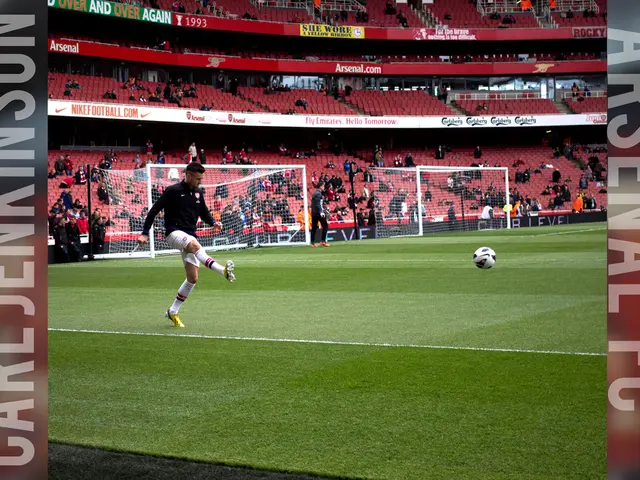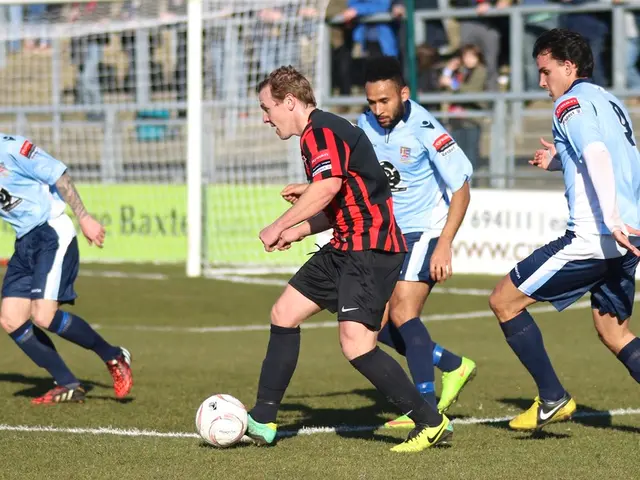UFC's Business Model on the Line as Lawsuits Threaten Fighter Contracts
Unorthodox Legal Action Threatens UFC's Operational Structure
By Michael Bauer
Facebook Twitter WhatsApp Email Print Copy Link
Once a fight ends, an MMA fighter's journey to the octagon is not just about physical preparation, but also about legal maneuvering within an intricate system of contracts. The Ultimate Fighting Championship (UFC), the industry leader in mixed martial arts, has found itself embroiled in a series of legal battles that could reshape the landscape of combat sports.
The UFC's treatment of its fighters has been a contentious issue for quite some time. Many fighters feel undercompensated, believing they are being exploited due to the UFC's market dominance. This dissatisfaction culminated in a class action lawsuit in 2014, which was partially settled for $375 million after a decade-long battle. Now, two new lawsuits are pushing the boundaries even further, potentially toppling the UFC's unique business model.
Traditionally, MMA fighters are not employees but exclusive contractors. This arrangement allows the UFC to control their appearances and restrict their movement to competing organizations. However, this could change with the latest legal disputes, threatening the UFC's grip on its fighters and the broader MMA industry.
The Legal Battlefront
The persisting legal challenges have multiple fronts. On one side, former UFC fighters are seeking compensation and contract reform, challenging arbitration and class-action waivers embedded in their contracts. These provisions have historically served as a barrier for fighters joining ongoing antitrust litigation, rendering the UFC effectively immune to broader legal challenges [1][2][3].
On the other side, litigants are claiming damages due to the UFC's alleged monopolistic practices, which, in the eyes of the plaintiffs, have harmed not just UFC fighters but also those in other promotions. Successful outcomes in these cases could lead to structural changes within the UFC, potentially reducing its monopolistic and monopsonistic control over the fighter market [1].
Implications for the MMA Industry
If they prove successful, the lawsuits could result in significant industry-wide reforms, enhancing fighter rights, fairer compensation, and greater freedom to negotiate with other promoters. Meanwhile, the UFC could face substantial damages, denting its finances and reputation [2][3]. Furthermore, the legal struggles escalate public debate around athlete welfare and the concentration of power in sports promotions, possibly leading to regulatory actions [1][2].
Amid this unfolding drama, one fighter, Phil Davis, has taken an unusual approach. Unlike his fellow plaintiffs, Davis isn't seeking compensation. Instead, he's trying to prove that the UFC's monopolistic practices also affect fighter pay in rival organizations. Davis's claim targets contract clauses that tie fighters to the UFC, making it difficult for them to join other professional MMA event organizers like the Professional Fighters League (PFL) [1]. Ultimately, Davis's crusade could set a precedent for a "sunset clause" – a contract provision permitting premature termination after a set time period – ensuring greater market-based pay and flexibility for MMA fighters [1].
Despite the uncertainty surrounding the outcomes, these legal battles promise to be protracted and complex. The potential implications for the UFC, fighters, and the MMA industry at large are significant, with wide-ranging consequences that could ripple across combat sports for years to come.
Terms used:- Mixed Martial Arts (MMA)- Ultimate Fighting Championship (UFC)
[1] https://www.sportsindustry.com/why-the-ufcs-newest-legal-battle-could-dramatically-transform-fighter-contracts/
[2] https://www.bloodyelbow.com/2021/11/11/22784217/ufc-fighter-lawsuit-antitrust-contracts-monopoly-implications
[3] https://www.espn.com/mma/story/_/id/32691779/lawsuit-filed-against-ufc-challenges-fight-contracts
In the ongoing legal battles, the UFC's business model rooted in mixed martial arts (MMA) and the Ultimate Fighting Championship (UFC) is under scrutiny, with potential implications for combat sports and MMA fighters. The UFC's treatment of its fighters, particularly the contractual arrangements that limit their mobility and earning potential, is being challenged in multiple lawsuits.
The legal disputes may lead to improved rights, fairer compensation, and greater flexibility for MMA fighters, altering the landscape of the MMA industry significantly. On the flip side, the UFC could face substantial damages and alterations to its unique business model if these lawsuits are successful.





